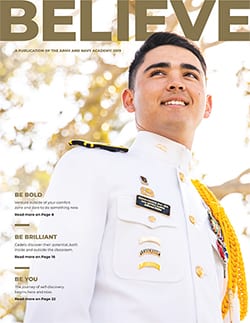In today’s world, traditional rules of etiquette have become increasingly reinterpretted or even forgotten. While we should embrace new expressions of respect for others, having a common understanding of the purpose and practice of etiquette in society is important for teenagers to fully understand and follow. In our comprehensive guide, you will learn rules of etiquette to use in various settings and situations. We will cover communications etiquette in-depth, but will also give you some simple rules to follow in an academics setting and when you’re a member of an audience. 
Remember that etiquette and manners are not quite the same, but often work hand-in-hand. As stated by Encyclopedia, “etiquette is a set of rules dealing with exterior form. Manners are an expression of character.”
By learning the basic rules of etiquette, you will be able to conduct yourself in an appropriate and productive manner. Both good manners and proper etiquette will make you more likable, approachable, and help you gain respect from others. This way of being will become a natural expression and demonstration of your leadership and character.
Communication Etiquette for Teens
Communication is essential in every aspect of life, so you are never too young to learn the rules of etiquette in communicating effectively in verbal, nonverbal and in written form. Whether you like it or not, people judge you by how you communicate. Follow these important communication etiquette tips below to manage the impression you wish to make on others.
Written Communications: Read the meaning both online and offline.
- Formal Letters – Your English teacher will love you if you learn to write well. In writing letters, make sure you date the letter and include the recipient’s address. You can find letter formats for resumes, business letters, and personal letters online. Website resources include: The Balance and Purdue Owl, both of which offer templates and visuals, are good website resources.
- Resumes – As a teen, make yourself stand out by preparing a simple resume for summer jobs, part-time employment opportunities and internships. Include key information such as: a brief overview of the job title and work you are seeking, work experience, education, volunteer work, and computer skills. Check out Indeed, My Perfect Resume, and Grammarly, all of which, offer many helpful tips and specific examples.
- Notes and Cards – Whether you are writing a greeting card, postcard, or notecard, make sure you follow proper etiquette for addressing and signing cards. Website resource: The Gallery Collection shows proper etiquette for birthdays, holidays, sympathy, get well cards, and thank you notes.
- Emails – Emails should include a salutation such as “hello” (but not “hey”), the name of the person, and be brief and succinct. If the email needs to be longer, break out thoughts using bullet points or numbers, or use bold headlines for ease in readability. Close the email with “thanks” or “thank you” and include your name.
- Texts – With texting being so commonplace today, make sure you communicate clearly and take time to edit before sending texts. Many mishaps and even misunderstandings occur when you use the speaker or Siri functions, so don’t count on any outside editors to check your writing for you!
- Online Reviews and Posts – Online etiquette requires constant constraint. Whether you are posting a comment on a review site or doing social media posts, remember to be respectful, positive, choose images carefully, proofread, and respond to others promptly.
Verbal: Listen to understand the meaning when conversing.*
- Keep Your Focus – Texting or using your mobile phone when listening to someone or speaking with others is impolite, so avoid this at all costs.
- Listen Attentively – Avoid interrupting or cutting a person off mid-sentence. Be a good listener by nodding your head and commenting.
- Watch Your Facial Expressions – Avoid scowling, frowning, or rolling your eyes as you speak.
- Show respectfulness– Be respectful and kind at all times. For instance, avoid the use of profanity, discriminatory language, or comments about politics or religion that could offend someone.
- Monitor Your Tone – Watch your volume and do not shout or yell when communicating with others.
- Modulate Your Voice – Articulation of words and modulating your voice will help others hear you better and increase their attention span.
- Use Humor – It is fine to use humor but avoid the use of sarcasm, slurs, put-downs or off-color joking.
*Apply these same rules to phone etiquette as well, as most of them are applicable.
Nonverbal: Observe and provide meaning from cues.
The more you begin observing others, the more adept you will become socially. Rules of etiquette can be quite simple or very subtle. Here are some etiquette tips to improve your nonverbal communication skills:
- Make Eye Contact – Show interest by making direct eye contact when speaking and listening.
- Watch Facial Expressions – If someone is giving you facial feedback, pay attention to it. They may not say what is on their mind, but they are trying to tell you something (e.g. you’re speaking too loud or offending them in some way).
- Check Body Language – Watch for body cues so you can be responsive and adjust as needed (e.g. perhaps you’re standing too close or touching them inappropriately).
- Ask Questions – If they look perplexed or puzzled, ask questions. This is a great way to balance conversations and show interest in the other person.
Classroom Etiquette for Students
To be a good student, it is important to follow the basic rules of etiquette in the classroom. At a boarding school for boys, where character is emphasized, these are some classroom etiquette tips for teens that the faculty provides.
- Be punctual
- Listen attentively
- Raise your hand if you have questions
- Speak clearly and increase volume
- Avoid conflict when doing team work
- Do not use offensive language or profanity
- Ask permission to leave the classroom if needed
- Don’t use your cell phone in the classroom
- Read the material before class and be prepared
- Take notes and make eye contact with the instructor
- Follow instructions when given
- Participate actively in class
- Don’t eat snacks in the classroom
Audience Etiquette for Teens
In or outside of school, when you attend any type of event (e.g. lecture, concert, play), bear these audience etiquette tips for teens in mind:
- Audience members should arrive on time
- Avoid slumping or blocking other people’s views
- Turn devices off to mute sounds and light sources
- Avoid rattling of snacks or fidgeting
- Muffle coughs and sneezes
- Do not talk during live performances
- Clap at the appropriate time
- Wait until breaks to use the restroom
- Dispose of waste where designated
- Follow photography protocols
As you can see, rules of etiquette can be learned and easily applied. As you become more self-aware and observant, you will follow the rules naturally. Most likely, you are already following basic etiquette. Remember, etiquette rules exist for a reason and will serve you well in school, college, career and in all social situations.
Seeking to enroll or transfer to a private school with an emphasis on etiquette? Founded in 1910, Army and Navy Academy is a day and boarding school geared for boys in grades 7-12. The Academy is located on a historic beachfront campus in Carlsbad (San Diego County), California. WASC accredited.
Contact us to learn more about our stellar leadership training, inspiring character development program, and highly ranked college prep academics.


